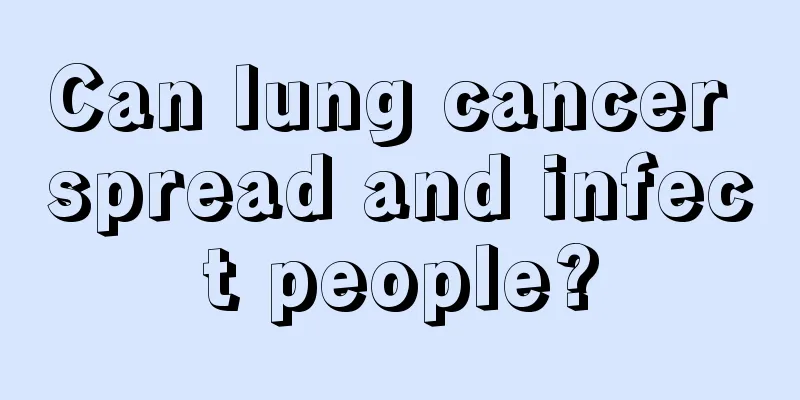Can lung cancer spread and infect people?

|
Lung cancer cannot be transmitted to others because it is not caused by infectious pathogens such as viruses and bacteria. Instead, it is a cancer caused by genetic mutations in body cells. Therefore, normal contact, communication, and even sharing of items will not spread lung cancer. Lung cancer is caused by a combination of complex internal and external factors, including long-term smoking, exposure to secondhand smoke, air pollution, occupational exposure (such as asbestos, chemical toxins), and family heredity. The spread of lung cancer is the process of cancer cells migrating to other organs in the body through the blood circulation or lymphatic system, and has nothing to do with any external infectious source. However, excessive worry after the discovery of lung cancer may affect the mental health of patients and their families, so appropriate treatment strategies need to be matched as soon as possible. Treatments include surgical resection (for early patients), radiotherapy and chemotherapy (for advanced or locally spread cases), and molecular targeted drug therapy (such as osimertinib, erlotinib, crizotinib), the latter of which has better sensitivity to specific gene mutations such as EGFR. Immunotherapy such as PD-1 inhibitors have also become emerging treatment options. Lung cancer is caused by a combination of complex internal and external factors, including long-term smoking, exposure to secondhand smoke, air pollution, occupational exposure (such as asbestos, chemical toxins), and family heredity. The spread of lung cancer is the process of cancer cells migrating to other organs in the body through the blood circulation or lymphatic system, and has nothing to do with any external infectious source. However, excessive worry after the discovery of lung cancer may affect the mental health of patients and their families, so appropriate treatment strategies need to be matched as soon as possible. Treatments include surgical resection (for early patients), radiotherapy and chemotherapy (for advanced or locally spread cases), and molecular targeted drug therapy (such as osimertinib, erlotinib, crizotinib), the latter of which has better sensitivity to specific gene mutations such as EGFR. Immunotherapy such as PD-1 inhibitors have also become emerging treatment options. Although lung cancer is not an infectious disease, support from those around you is important. When caring for patients, you can pay attention to creating a clean environment and help patients stay away from tobacco and pollution. Family members should pay attention to their health management in their lives with patients. If there is a family history of lung cancer, they should undergo regular low-dose CT screening and quit smoking to reduce the risk. For unavoidable psychological pressure, it is recommended to consult a professional doctor or psychologist to help patients and their families cope with the challenges of the disease and quality of life together. |
<<: 28-year-old with multiple hamartomas in both kidneys
>>: Can prostate cancer be detected? How long can one live?
Recommend
Symptoms of chronic urethritis, there are so many dangers
Chronic urethritis is extremely common in life. C...
Rubella virus antibody
Generally, pregnant women need to undergo various...
How to find the right blood vessel for infusion?
In daily life, infusion is a common way to treat ...
Is lobster seafood? Is crayfish seafood?
Hot crayfish in summer can represent the hot summ...
Traditional Chinese medicine treatment for bile duct cancer
The first choice of medicine for patients with ga...
Can pregnant women squat?
In daily life, we often squat. For example, when ...
What's wrong with coughing to the point of retching
People will get sick for some reasons in their da...
What are the commonly used chemotherapy regimens for breast cancer in clinical practice?
In recent years, breast cancer has gradually rise...
What is the difference between boiling tea and making tea
Drinking tea is a Chinese tradition since ancient...
What happens if there is no pregnancy line in the fourth month of pregnancy?
The pregnancy line is a set of black lines formed...
Why does water ooze out after a burn
In our daily life, we often encounter burns. Seve...
Can I drink melon slices if I have constipation?
Everyone knows what melon slices are. They are mo...
Throat cancer examination methods
Early detection of cancer is very helpful for tre...
Is the treatment of advanced nasopharyngeal carcinoma painful? How to take care of it?
Radiotherapy is a good method for the treatment o...
What are the treatments for lung metastasis after rectal cancer surgery?
The treatment of postoperative metastasis of rect...









